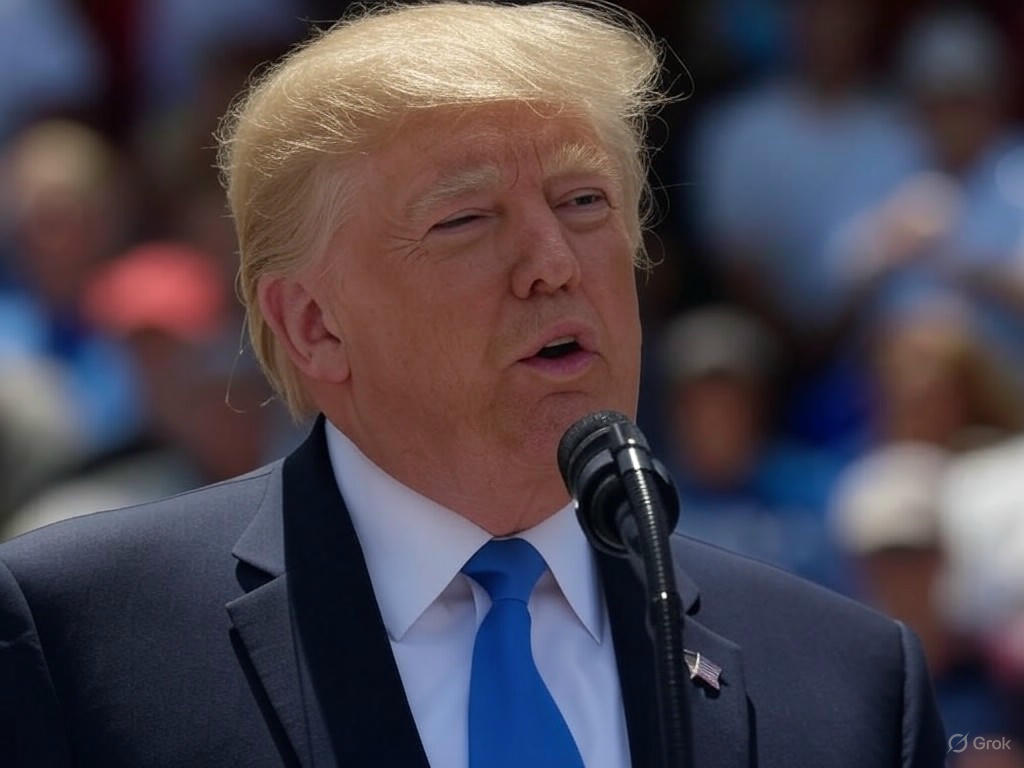Trump’s Provocative Jab at Newsom Sparks Political Firestorm
In a recent public statement that has sent shockwaves through political circles, former President Donald Trump expressed a controversial sentiment about California Governor Gavin Newsom, suggesting it would be ‘great’ to see him arrested. This bold remark, made during a heated rally on June 9, 2025, has reignited discussions about the deep-seated animosity between the two prominent figures, whose ideological differences have long fueled a bitter rivalry. Their ongoing feud, rooted in clashing views on governance, policy, and personal style, continues to captivate the nation’s attention as it underscores broader tensions within American politics.
The relationship between Trump and Newsom has never been amicable. Over the years, Newsom has been a vocal critic of Trump’s policies, particularly on issues like immigration, climate change, and healthcare. During Trump’s presidency, California often positioned itself as a bastion of resistance, with Newsom leading the charge through lawsuits and public denouncements. In return, Trump has repeatedly targeted Newsom with sharp rhetoric, criticizing his handling of state issues like homelessness and wildfires while painting him as a symbol of liberal overreach. This latest comment, however, escalates their conflict to a new level, raising questions about the boundaries of political discourse and the potential implications of such provocative language from a figure of Trump’s stature.
What lies beneath this latest barb is a complex web of political strategy and personal grievances. Trump’s remark can be seen as an attempt to rally his base by targeting a high-profile Democratic leader who embodies the progressive policies he often rails against. By framing Newsom as a figure deserving of arrest—though no specific legal basis was provided—Trump taps into the frustrations of his supporters who view California’s leadership as emblematic of broader national issues. On the flip side, critics argue that such statements risk normalizing dangerous rhetoric, potentially inciting unrest or undermining trust in democratic institutions. Newsom, for his part, has yet to respond directly, though his administration has previously dismissed similar attacks as distractions from more pressing governance challenges.
The timing of this comment also adds layers to its significance. As the 2025 political landscape begins to take shape, with midterm elections on the horizon and speculation about future presidential runs swirling, both Trump and Newsom remain central figures in their respective parties. Trump’s words may serve as a preview of the combative tone likely to dominate upcoming campaigns, while Newsom’s response—or lack thereof—could signal how Democrats plan to counter such provocations. Beyond their personal clash, this incident reflects the polarized state of American politics, where personal attacks often overshadow substantive policy debates.
As the dust settles on this latest controversy, one thing remains clear: the Trump-Newsom saga is far from over. Their rivalry continues to serve as a microcosm of the larger cultural and political divides in the United States. Whether this remark will have lasting consequences or simply fade into the noise of daily headlines remains to be seen, but it undeniably adds fuel to an already fiery political arena.


